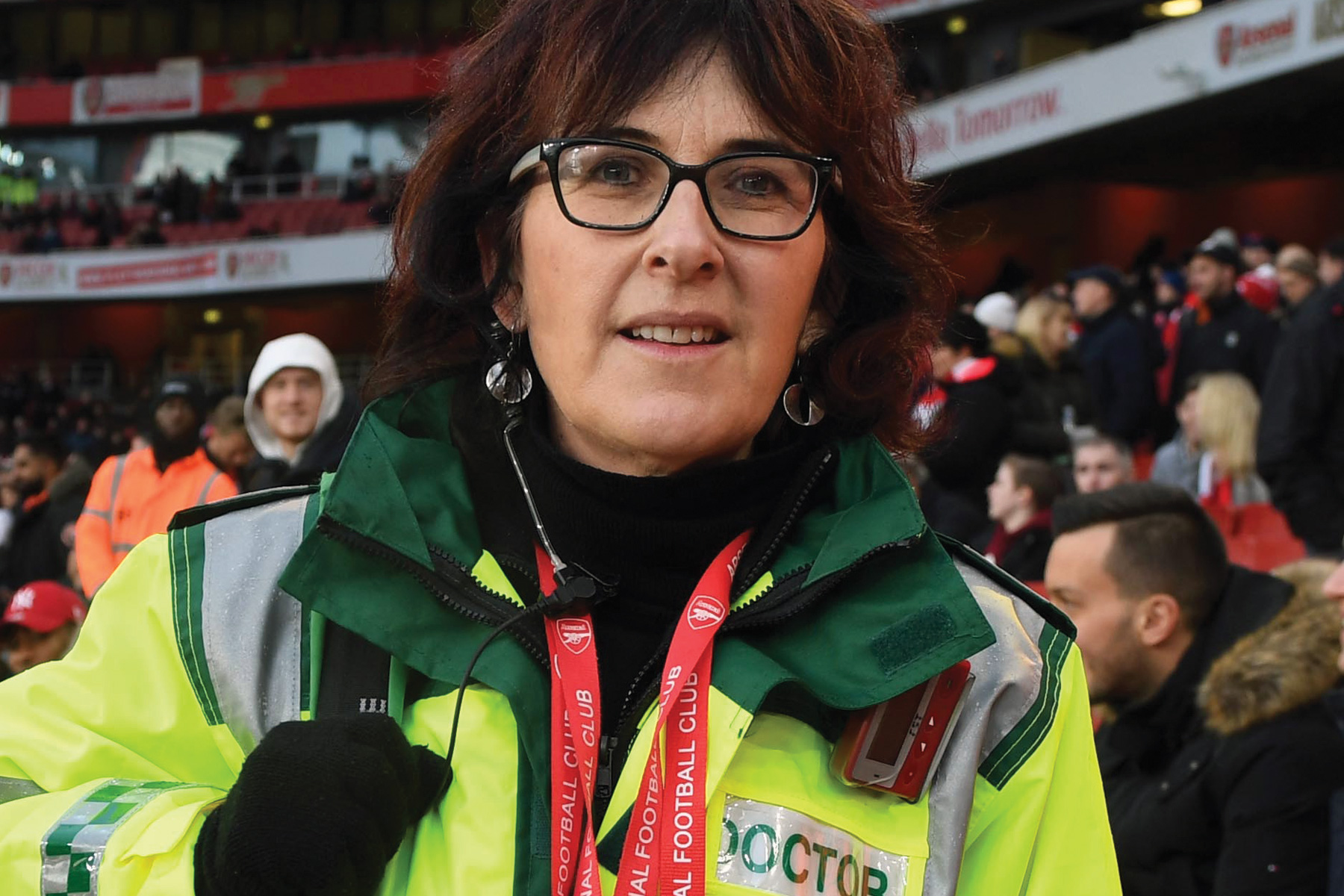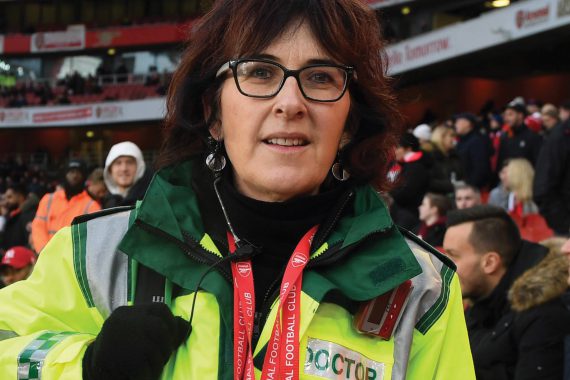Profile: Dr Fiona Sanders

Roles: Lead crowd doctor, Arsenal Football Club. GP partner, trainer and appraiser in north-east London
Hours: 10–20 hours per month as lead crowd doctor during Premier League season; five clinical sessions a week at GP practice
12.00pm I arrive at the Emirates stadium in north London and head straight to the main first aid room to inform the stadium manager I’ve arrived, then meet with the London Ambulance Service and St John Ambulance lead officers to discuss any intelligence and logistics.
1.00pm The other three crowd doctors arrive and we check our equipment and drugs, and allocate roles. Each doctor is equipped with emergency drugs and advanced life support equipment including a defibrillator, and matched with a St John Ambulance first aider who acts as our comms person. All calls for medical assistance are dispatched via the St John matchday control.
1.30pm I grab a coffee and head to the briefing room for a combined briefing with the whole medical team, after which we move to our matchday positions around the stadium. Today we’re expecting a typical crowd of 60,000 and have four doctors, 10 London Ambulance paramedics and around 45 St John Ambulance staff.
3.00pm The fans’ flags are up and they are in full song; a surging roar alerts me that the match is under way. I watch the first few exchanges and two early attempts on goal from Arsenal, which gets the home crowd even more pumped up.
3.15pm I get a call for medical assistance in Block 6. A steward has reported a man aged around 40 acting very strangely. I check his blood glucose and sure enough it is very low. He is belligerent but I’m able to persuade him to the first aid room where, after eating a Mars bar and having cup of tea he becomes contrite and apologetic. I discuss his medication with him, and give advice on self-management and follow-up with his GP.
Most of what we deal with is minor illness and injury, but we’re always on alert. Once or twice a season we deal with a cardiac arrest or stroke, requiring emergency assessment and treatment in the stand. This helps keep up my acute skills. The role requires you complete a dedicated course on crowd doctoring, recognised by the FA, which covers typical advanced life support training as well as wider pre-hospital skills.
We also deal with any ‘major medical incident’ such as a crowd crush, or terrorist incident, for which my major incident medical management and support qualification equips me to work alongside emergency services.
3.40pm From the first aid room the roar of the crowd outside makes us all look up to the TV screen. The Gunners have scored and the crowd is going wild, jumping up and down. I head out to the stands and catch the end of the first half.
4.20pm I get a call to go to the main first aid room, where a doctor is assessing an elderly man in his late 60s with severe breathlessness. The doctor has performed an ECG which shows the patient has gone into fast AF. We agree he needs to go to hospital but I’m conscious the approach roads will close 20 minutes before the final whistle for an hour. As he is stable, I arrange for him to be taken by the St John ambulance to the nearest A&E immediately.
One of the best parts of the job is working with the medical team. We get on well and learn from one another. As a GP my consultation and assessment skills are integral, and I’m used to working without immediate investigations and relying on clinical judgment, which can be harder for doctors from a more specialist background; conversely they are used to dealing with acutely sick patients, so as a team we complement each other well.
5.15pm Match over, I meet colleagues at the main first aid room for a quick debrief and to finalise paperwork. I leave as the crowd dissipates into the cold Saturday evening, still buzzing from the atmosphere. I love the role, not least because as a passionate Arsenal supporter it enables me to be closely involved with the club. It’s also been a great way to develop my career; you work with a range of NHS services plus the stadium management, police and the council, which gives a real sense of being part of the community as well.
Pulse October survey
Take our July 2025 survey to potentially win £1.000 worth of tokens















